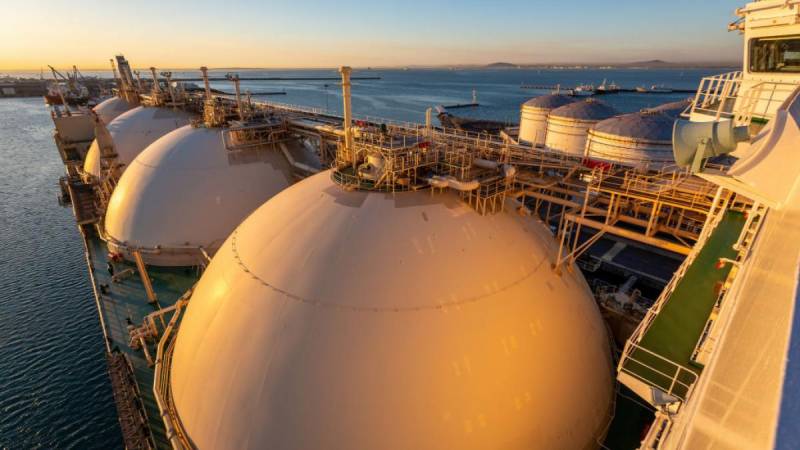
Pakistan is all set to receive its first order of discounted Russian crude oil in May 2023. The new avenue will serve as a test case for the country to compare the cost of Russian crude oil with the existing cost of crude from Abu Dhabi National Oil Company (ADNOC) and Saudi Aramco.
If the landed cost of Russian oil is lower than the cost of importing from ADNOC and Saudi Aramco, it could potentially lead to a decrease in the prices of petroleum, oil, and lubricants in the country.
While talking to Reuters, State Minister for Petroleum Musadik Malik stated, “The deal will see Pakistan buy crude oil only, not refined oil, and imports are expected to reach 100,000 barrels per day if the first transaction goes through smoothly.”
Pakistan’s oil imports
According to recent data from the Pakistan Bureau of Statistics (PBS), the country's total oil import bill in the period of July to March FY23 was recorded at $13.08 billion, reflecting an 11.66% decrease year on year. Within this period, imports pertaining to petroleum products also declined from $7.3 billion to $5.8 billion, while crude oil imports saw a 4.69% increase to $3.86 billion and liquefied petroleum gas imports rose by 3.78% to $533 million. On the other hand, natural gas imports (liquefied) experienced a decline of 14.11% from $3.32 billion to $2.85 billion.
High levels of oil imports are one of the primary pressures on the country’s dollar reserves. Therefore, discounted fuel from Russia can offer some respite on that front. Further, as Russia has avoided trading in dollars post-sanctions, it is speculated that Pakistan would transact in either Chinese Yuan or UAE Dirhams.
Sanctions and the way out
Last December, the G7, in conjunction with the EU and Australia, agreed on setting a $60 per barrel price ceiling on Russian oil, adding to the EU's previous restrictions on the transportation of Russian crude oil and refined petroleum products. Although countries outside of the EU, such as Pakistan, can still buy Russian crude oil, yet the transportation, shipping, insurance, and re-insurance companies are restricted from carrying cargoes of Russian crude anywhere globally unless the price is below $60 per barrel. The aforementioned services market is approximately 90% controlled by firms from G7 countries, which has led to complications in importing Russian oil.
Following this ban, Pakistan's ability to get oil from Russia became more problematic. The central issue is that even if a deal was made with Russia, the transport of its oil over thousands of miles would be challenging due to the reluctance of oil tankers to carry Russian crude that was sold above the regulated price ceiling. However, the Russian Shadow Oil Tanker Fleet has turned out to be a solution to that problem. While Officials have hinted that the National Insurance Company Limited (NICL) and Pakistan Reinsurance Company Limited (PakRE) might be used to insure ships that transport Russian crude oil.
If the landed cost of Russian oil is lower than the cost of importing from ADNOC and Saudi Aramco, it could potentially lead to a decrease in the prices of petroleum, oil, and lubricants in the country.
While talking to Reuters, State Minister for Petroleum Musadik Malik stated, “The deal will see Pakistan buy crude oil only, not refined oil, and imports are expected to reach 100,000 barrels per day if the first transaction goes through smoothly.”
Pakistan’s oil imports
According to recent data from the Pakistan Bureau of Statistics (PBS), the country's total oil import bill in the period of July to March FY23 was recorded at $13.08 billion, reflecting an 11.66% decrease year on year. Within this period, imports pertaining to petroleum products also declined from $7.3 billion to $5.8 billion, while crude oil imports saw a 4.69% increase to $3.86 billion and liquefied petroleum gas imports rose by 3.78% to $533 million. On the other hand, natural gas imports (liquefied) experienced a decline of 14.11% from $3.32 billion to $2.85 billion.
High levels of oil imports are one of the primary pressures on the country’s dollar reserves. Therefore, discounted fuel from Russia can offer some respite on that front. Further, as Russia has avoided trading in dollars post-sanctions, it is speculated that Pakistan would transact in either Chinese Yuan or UAE Dirhams.
Sanctions and the way out
Last December, the G7, in conjunction with the EU and Australia, agreed on setting a $60 per barrel price ceiling on Russian oil, adding to the EU's previous restrictions on the transportation of Russian crude oil and refined petroleum products. Although countries outside of the EU, such as Pakistan, can still buy Russian crude oil, yet the transportation, shipping, insurance, and re-insurance companies are restricted from carrying cargoes of Russian crude anywhere globally unless the price is below $60 per barrel. The aforementioned services market is approximately 90% controlled by firms from G7 countries, which has led to complications in importing Russian oil.
Following this ban, Pakistan's ability to get oil from Russia became more problematic. The central issue is that even if a deal was made with Russia, the transport of its oil over thousands of miles would be challenging due to the reluctance of oil tankers to carry Russian crude that was sold above the regulated price ceiling. However, the Russian Shadow Oil Tanker Fleet has turned out to be a solution to that problem. While Officials have hinted that the National Insurance Company Limited (NICL) and Pakistan Reinsurance Company Limited (PakRE) might be used to insure ships that transport Russian crude oil.

